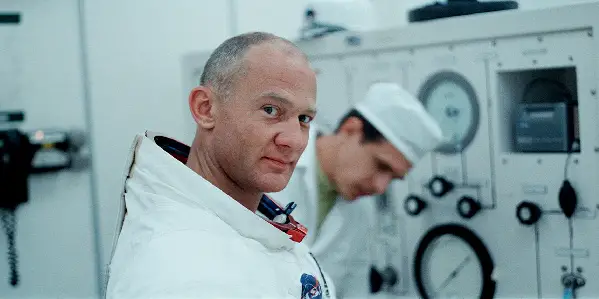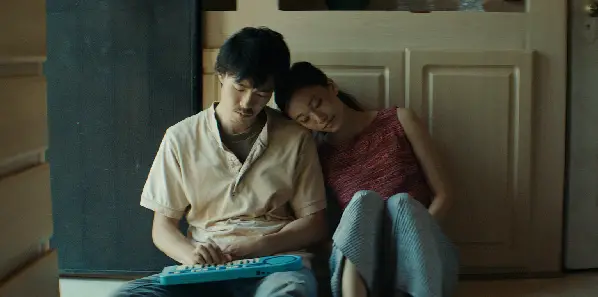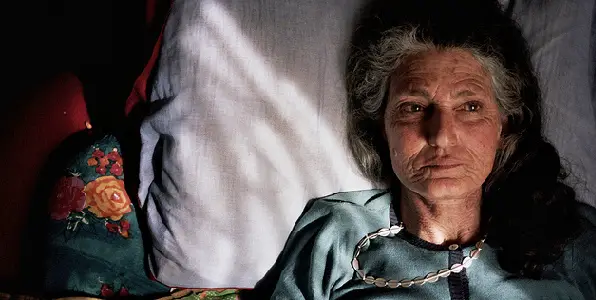Sundance Film Festival 2019 Report 2: To The Moon, The Past and Back With APOLLO 11, MS. PURPLE, ALWAYS IN SEASON & THE DISAPPEARANCE OF MY MOTHER

Alex is a film addict, TV aficionado, and book lover.…
The Sundance Film Festival is underway, and despite everyone trudging through snow and slush to get to theaters, the excitement of the first big festival of the year can’t be dampened. I stuck mostly to documentaries for my first crop of movies, lucking into seeing one of the buzziest movies of the festival’s first weekend. Strap in for a trip to the moon, an obsessive son, a decaying family, and the possibly not dead practice of lynching, because I like to keep it light, everybody.
APOLLO 11 (Todd Douglas Miller)

An archivists dream is converted into an absorbing documentary on the first moon landing in Apollo 11, an achievement of both technical and emotional prowess.
Yes, I know that First Man just took on the same story, but the more apt comparison for Apollo 11 would actually be Jane, the documentary that formed hours of previously unreleased footage of Jane Goodall’s research into a loving ode to the revolutionary woman. Apollo 11 similarly began as mounds of footage from NASA’s archive, and the great task before director Todd Douglas Miller was to not be overwhelmed by the sheer scale of material in front of him.
There’s also the complication that everyone already knows this story. We landed on the moon; it’s pretty hard to have missed that. It’s astounding, then, that Miller had the restraint to make Apollo 11 as simple and straightforward as he did. It’s a timeline of the mission using strictly stock footage, no razzle dazzle, with the clear and often funny observation that it was regular, fallible men who took us there.
There’s a tendency for filmmakers who take on scientific subjects to make the story about something else, as if they don’t think the science itself can carry a film. First Man made the journey to the moon about grief and stifling masculinity; Apollo 11 doesn’t take such an easy out. It trusts its audience to sit through rigorous procedures and glacially paced outer space maneuvers, often cutting to the rooms upon rooms of people monitoring and guiding each step of the journey. In this way, it forms its own ode to the scientific process by capturing the often slow and maddeningly minutia-driven way that humans achieve monumental things.
This appreciation for process perhaps stems from the meticulous work Miller and his team had to undertake to make this film, not only combing through hours of material but matching audio recordings to silent footage and recreating every bit of ambient sound. The mastery of this job is evidenced by the fact that you’ll never notice it when watching Apollo 11. The world of 1969 feels as full and vibrant as the one surrounding you now, a feat of creation all the more impressive for the fact that you don’t realize it’s a creation.
All of this talk about the scientific-mindedness of Apollo 11 isn’t to say that it is emotionally reserved, though. In fact, the film actively works against the stereotype of uptight scientists by showing them cracking jokes and celebrating awkwardly with overdone fist pumps (okay, some stereotypes about scientists are true). One of the great cinematically untapped aspects of life is the profound way that science reaches for what is beyond us, and there’s hardly a moment that more easily conveys this than the first moon landing. Apollo 11 makes you feel the sense of awe at seeing our world expanded, and it does it again and again. That’s a feat in and of itself.
Ms. Purple (Justin Chon)

A brother and sister must come to terms with the remnants of their family in Ms. Purple, director Justin Chon’s follow-up to the acclaimed Gook.
Chon is sticking close to what he knows yet again, bringing us another film steeped in the complications of being a child of immigrants. Here that comes to the front as Kasie (Tiffany Chu) must decide what to do with her dying father, who she steadfastly refuses to put into hospice care. Wanting to take care of him as a family, she calls on her deadbeat brother, Carey (Teddy Lee), to help with his final days, forcing their fractured relationship to tentatively heal.
This is a film intimately concerned with bodies, from their decay to the way they can define us, and Chon weaves their uses and limitations throughout Ms. Purple. By contrasting the father’s comatose condition to his children’s youth and the bedraggled look of Carey to Kasie’s manicured style, he is able to tap into the shifting dynamics of their family without relying on exposition dumps. This motif is the most consistent aspect of the film, and because of that it generates the greatest moments of emotional release.
Unfortunately, Chon still hasn’t settled as a filmmaker, so the rest of the film doesn’t benefit from such a strong vision. Dipping into imagery straight from Wong Kar-wai and prominently featuring ecclectic, often jarring song choices, Ms. Purple often feels a little too ambitious for its own good.
The ramshackle approach means some of the more interesting aspects of the story get shortchanged, particularly the complicated relationship between Kasie and Carey. We get enough of their backstory to suss out what caused the distance between them, but the stylistic flourishes too often fail to bring the meat of their relationship to the fore.
This is especially disappointing considering the amount of nuance both Chu and Lee bring to their characters. Each get to play a lot of wordless moments, with the quiet melancholy of Chu and the distancing smirk of Lee each bringing down the house in their own way. These insular moments are offset by their plainspoken arguments, each needling the other to be someone they can rely on. With their family dwindling, these requests take on an urgency that Chu and Lee hit without playing up, and unfortunately the precision of these performances are at odds with the film’s overwrought moments.
What saves Ms. Purple are the bits where Chon and his team manage to hit the same subdued note, capturing the character-driven essence of this story. It’s a classic case of the specific being universal, and the more Chon trusts the audience to understand without getting in the way, the better his films will be going forward.
Always in Season (Jacqueline Olive)

The death of 17-year-old Lennon Lacy, who was found hanging in a park in 2014, was quickly ruled a suicide by police, but family and friends could never make sense of the vivacious young man taking his own life. Questioning whether a black person’s death could stem from racially-driven motivations is a no-go in North Carolina, though, so the case remains an open wound for those close to Lennon. That’s where director Jacqueline Olive comes in, lifting the death from potential obscurity and putting it in the context of America’s reprehensible history of lynching.
Olive shows a deft touch when it comes to jumping back and forth between present day events and the information dumps that explain the use of lynching as a tool of repression, never dwelling too much on the sickening events while also making sure the horror lands. She often sets down a case only to return to it later, peppering in information to match the unwinding of Lennon’s case. This forms an effective parallel to the past, but it also inevitably brings up questions about the need to dwell on our difficult history.
To the film’s credit, this is a question it actively engages with, spending time with local reenactors of a gruesome murder and contrasting them with folks who just want to leave the past behind. What becomes of this is a clear look at the dangerous ramifications of ignoring our past, and how this train of thought could lead directly to Lennon’s death being written off as a suicide. It’s a worthy and fleshed out diversion within in the film, but unfortunately not everything gets the same level of attention.
The core of Always in Season is Lennon’s death, essentially making this one of many in the true crime glut we are currently experiencing. It’s also where the movie falls short, leaving many threads of the case unexplored. Lennon himself remains a bit of an enigma, with his characterization changing based on who is being interviewed and where we are in the unfolding argument. It’s inescapable that he is being used as a test case for the continued existence of lynching, but that doesn’t excuse the fleeting glimpses we get of the person whose death sparked the entire film.
To be fair, the lack of information about Lennon’s death is laid at the feet of the police department, who the movie claims failed to do a proper investigation of the case. Olive maddeningly includes intriguing bits of speculation and rumor that is never adequetely followed up on, though. The blame for that lays entirely with the filmmakers and directly leads to its underwhelming ending, which fails to wrap up the case with any sort of satisfying bow.
Despite this, Always in Season asks enough sobering questions to be worthwhile and makes a compelling case for keeping them open for discussion.
The Disappearance of My Mother (Beniamino Barrese)

Director Beniamino Barrese had a captivating subject right in front of him in his mother, Benedetta Barzini, a legendary fashion model turned feminist. If these traits seem to be at odds to you, well, that’s because they are, and one gets the sense that Barzini’s stated desire to disappear from the world is a sort of admission that these two sides of herself can no longer coexist.
This would make for a fascinating jumping off point for any documentary, but the fact that her son took up the camera himself makes this into a freudian field day of unspoken needs and desires. Who else can really get under your skin like your family, and the interplay between mother and son adds a voyeuristic thrill to the struggle of one woman to reconcile her life.
The contrast between her fame as a fashion model (something she apparently hasn’t entirely given up given that she walks a runway in the film) and her railings against the overwhelming male gaze of the industry is the main dichotomy of her life, something Barrese rightfully keys in on as utterly fascinating.
The unspoken thread is that her son has grown into a man himself, and filtering her through his point of view means she is still subject to the male gaze she so desperately wants to break free from. Barzini seems more aware of this than Barrese, as she quite plainly views his camera as an invasion while he stubbornly keeps filming despite her protests. This lends the film both a leery and an adamant quality, as it is seemingly dwelling on questions neither have answers to.
What Barrese does have a clear handle on is the way age changes our perception of beauty, something that is intrinsically linked to the male gaze within the fashion industry. He often has her match poses from her 1960s glamour days, and in a flurry of editing makes these two versions of her body one in the same. It’s a loose-knit thread that utilizes the film’s vérité style to its fullest, allowing the audience to make our own specific read of these images without imposing a restrictive point.
All of this and several other swirling ideas make The Disappearance of My Mother a captivating watch for most of its runtime, but unfortunately the bottom gives way as the film tries to wrap up. Barzini’s desire to escape the cameras and live out the rest of her days on an isolated island is seemingly impossible, and her movement towards actually doing it is glacial. One begins to wonder whether her impending disappearance, which seems to so upset her son, is just a fantastical lark. Barrese never finds a satisfying way to address this possibility, and the more we are left to wonder about this specific point, the less interesting this documentary becomes.
That’s it for my first round of Sundance films. Did any of these pique your curiosity? Tell us your thoughts in the comments below!
Does content like this matter to you?
Become a Member and support film journalism. Unlock access to all of Film Inquiry`s great articles. Join a community of like-minded readers who are passionate about cinema - get access to our private members Network, give back to independent filmmakers, and more.
Alex is a film addict, TV aficionado, and book lover. He's perfecting his cat dad energy.













